As India’s new Prime Minister Mr. Modi prepares for his first US trip, an anti- Modi petition replete with no facts and full with false accusations has been filed on the official website of President of the United States. The idea of this anti-India petition is to slander India as a ‘fascist state’ by making false allegations of human rights violations.
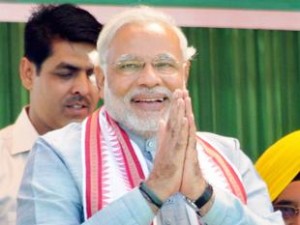 As a unified voice of Indian Americans, USINPAC strongly opposes this petition and encourages every Indian American to write to their lawmakers to ensure this anti-India petition is pulled down from the White-House website. This is the time to stay united and the best opportunity to discredit the motives and agenda of organizations engaging in perpetrating such lies which have no basis.
As a unified voice of Indian Americans, USINPAC strongly opposes this petition and encourages every Indian American to write to their lawmakers to ensure this anti-India petition is pulled down from the White-House website. This is the time to stay united and the best opportunity to discredit the motives and agenda of organizations engaging in perpetrating such lies which have no basis.
USINPAC successfully led a grassroots outreach efforts in Washington DC to stop the Resolution HR 417 from going to the House Floor for a vote in Nov. 2013. HR417 was a resolution intended to influence India’s upcoming elections by focusing on the 2002 Gujarat riots. USINPAC has been constantly working on the Hill to promote US-India strategic relationship.
We again urge you to pick up your phone, call your lawmakers and sign the following petition: http://wh.gov/luV42.
For more details, please ask us: info@usinpac.com
Monthly Archives: August 2014
Strengthening the Bond: Looking at the Energy and Defense Perspective
The relationship between India and the United States is on the threshold of a new resurgence. Newer opportunities are knocking at the doorsteps of both the countries and with Narendra Modi all set to visit US next month, there could not be a more opportune time to take this relationship to the next level. The recent visit of US Secretary of State John Kerry and Secretary of Commerce Penny Pritzker to India could not have come at a more crucial juncture. Their meetings with various dignitaries, including Indian Prime Minister Narendra Modi, reinforced the need to strengthen the relationship between the two countries, in the wake of India walking out of the WTO.
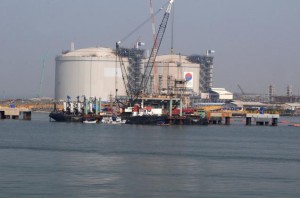 The issue of Energy security is critical for both the US and India. As a country US is producing more fuel than it can ever use, but the refusal to export the same to India is hurting the trade relations between the two countries. For US, it would ensure that thousands of jobs are created and it would boost the economy several notches higher and for India it would mean an uninterrupted supply of clean energy. Why this win-win situation for both US and India is still pending and has not been implemented is beyond comprehension.
The issue of Energy security is critical for both the US and India. As a country US is producing more fuel than it can ever use, but the refusal to export the same to India is hurting the trade relations between the two countries. For US, it would ensure that thousands of jobs are created and it would boost the economy several notches higher and for India it would mean an uninterrupted supply of clean energy. Why this win-win situation for both US and India is still pending and has not been implemented is beyond comprehension.
Apart from that, defense development between the two countries is the need of the hour and both US and India must seize every opportunity to collaborate on defense and not let other factors restrict the growth between the two nations. The recent visit of Defense Secretary Chuck Hagel to India was a step in that direction.
Hagel has left India with few concrete agreements and he acknowledges the fact that the world’s oldest and the world’s largest democracy must be results oriented and do more to transform the defense co operation between both the nations from just buying and selling tradeoffs to the next level of co production and co development.
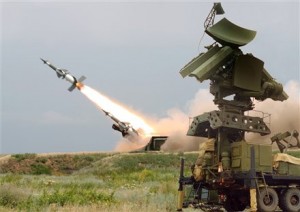 In the near future, The US is hoping to partner with India as it modernizes its military, but at the same time Indian leaders are more interested in co-development opportunities than in simply buying American-made weapons.
In the near future, The US is hoping to partner with India as it modernizes its military, but at the same time Indian leaders are more interested in co-development opportunities than in simply buying American-made weapons.
The new initiative brought to the forefront by Hagel includes more than a dozen proposals that would transfer technology and production expertise to India. It includes a plan for the US and India to co-produce and co-develop, the next upgrade of the Javelin anti-tank missile which would be cheaper, lighter and more capable.
The development initiative in other words is part of a larger picture which is America’s attempt to improve what has often been a shaky relationship with India, which can turn out to be one of their most prominent allies in Asia.
A Modi-Fied India prepares for its 67th Independence Day
As Indian Prime Minister Narendra Modi prepares for his first speech from Delhi’s Red Fort on Independence Day, history is waiting to be rewritten. In fact Modi has been preparing for this moment for some time now.
If we roll the clock back a year from now, it was on August 14, 2013 when Modi had thrown down the gauntlet by challenging that his August 15 speech in Gujarat, as Chief Minister, would draw as much attention as that of then Prime Minister Manmohan Singh’s from the Red Fort.
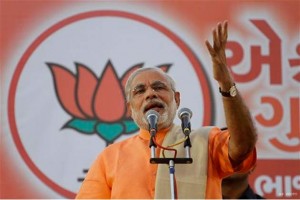 His speech last year on Independence Day had begun from a college in Bhuj and had started about half an hour after Manmohan Singh’s speech had finished. Modi had then torn into Dr. Singh’s speech branding it uninspiring and disappointing. The bigwigs at BJP had then proclaimed that Mr. Modi’s next Independence Day speech would be at Delhi’s Red Fort. In fact so fond a wish was it that in election-bound Chhattisgarh in September last year, the BJP erected a replica of the Red Fort as a stage for a Modi rally.
His speech last year on Independence Day had begun from a college in Bhuj and had started about half an hour after Manmohan Singh’s speech had finished. Modi had then torn into Dr. Singh’s speech branding it uninspiring and disappointing. The bigwigs at BJP had then proclaimed that Mr. Modi’s next Independence Day speech would be at Delhi’s Red Fort. In fact so fond a wish was it that in election-bound Chhattisgarh in September last year, the BJP erected a replica of the Red Fort as a stage for a Modi rally.
Here we are a year later, and the stage is set for Prime Minister Narendra Modi to deliver a speech which many expect would be inspiring and thought provoking in equal amounts.
As the D day draws closer, it is believed that the speech will highlight three major initiatives that are in the pipeline. The spotlight shall remain on big ticket reforms but the three initiatives-a clear plan for the Clean Ganga project, skill development for the nation’s youth, and real steps to ensure financial inclusion-will be the main ingredients of Modi’s first address to the nation.
In fact all three of these major initiatives have been the fulcrum of Modi’s campaign and have been the party’s manifesto in the run-up to the Lok Sabha elections this year. In the pipeline are plans to create separate nodal offices for skill development and Clean Ganga project. While the skill development for youth is proposed to be handled by about 20 ministries, different programmes to clean Ganga shall fall under at least three ministries.
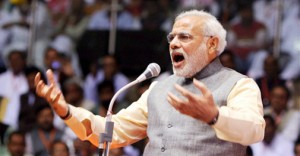 True to Modi’s focus on skill development, the government has completely dedicated one of the six areas on the recently launched web portal MyGov to it. The purpose is to develop bold ideas, concrete policies, initiatives and interventions to help develop employable skills on a mass scale to meet the needs of the industry and help youth enter the job market.
True to Modi’s focus on skill development, the government has completely dedicated one of the six areas on the recently launched web portal MyGov to it. The purpose is to develop bold ideas, concrete policies, initiatives and interventions to help develop employable skills on a mass scale to meet the needs of the industry and help youth enter the job market.
So as the countdown begins for August 15, the nation shall wait with bated breath for Modi to unleash a speech which will be charismatic and impactful in equal amounts. After all, we already know he is a man of his words.
A Congressional Briefing on US Liquefied Natural Gas (LNG) Exports to India
About the Event
On July 30th, 2014, USINPAC organized a Congressional Briefing on US Liquefied Natural Gas (LNG) Exports to India at the United States Capitol Visitor Center Room, Washington D.C.
The purpose of the briefing was to inform offices of lawmakers and thought leaders about the tremendous potential for US LNG exports, the nature and scope of the LNG import market in India, how LNG can advance energy security, a critical US foreign policy goal in the region, and ways to expedite LNG trade between the two largest democracies of the world.
The briefing mainly focused on the following key points:
• Significance of India as a trade partner of the US in LNG exports
• The DOE-FERC licensing process for approval of US LNG exports
• Potential for Legislative action to expedite US-India LNG trade
Speakers at the Briefing
Congressman Ted Poe
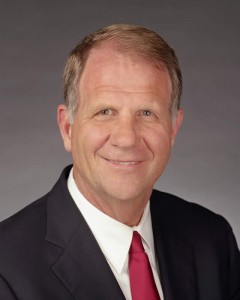 Congressman Ted Poe is a leading advocate in Washington for limited government, free markets, low taxes and individual liberty. Rep. Poe serves on the House Judiciary Committee, and the Foreign Affairs Committee as Chairman of the Subcommittee on Terrorism, Nonproliferation and Trade. He has been a champion of LNG exports and recently introduced a bill that would require the Department of Energy to expedite and approve exports of natural gas.
Congressman Ted Poe is a leading advocate in Washington for limited government, free markets, low taxes and individual liberty. Rep. Poe serves on the House Judiciary Committee, and the Foreign Affairs Committee as Chairman of the Subcommittee on Terrorism, Nonproliferation and Trade. He has been a champion of LNG exports and recently introduced a bill that would require the Department of Energy to expedite and approve exports of natural gas.
Congressman Pete Olson
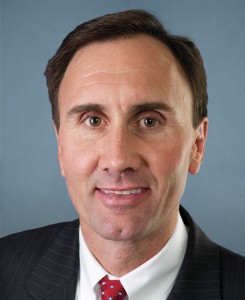 Congressman Pete Olson represents the 22nd District of Texas in the U.S. House of Representatives and also serves on the House Energy & Commerce Committee. The Energy & Commerce Committee has wide jurisdiction over the energy, healthcare, and telecommunications industries and Rep. Olson’s contribution towards the LNG initiative has been immense.
Congressman Pete Olson represents the 22nd District of Texas in the U.S. House of Representatives and also serves on the House Energy & Commerce Committee. The Energy & Commerce Committee has wide jurisdiction over the energy, healthcare, and telecommunications industries and Rep. Olson’s contribution towards the LNG initiative has been immense.
Congressman James Lankford
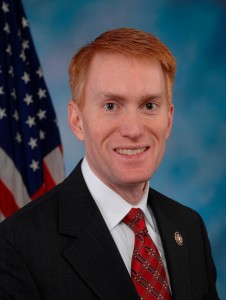 Congressman James Lankford is the U.S. Representative for Oklahoma’s 5th congressional district. From EPA regulations on the energy industry to the negative impact of regulations on banks and financial institutions, Congressman Lankford has always believed in making an impact and resolving issues. He is dedicated to freeing up business to grow and add jobs and take the United States to a bigger economic platform.
Congressman James Lankford is the U.S. Representative for Oklahoma’s 5th congressional district. From EPA regulations on the energy industry to the negative impact of regulations on banks and financial institutions, Congressman Lankford has always believed in making an impact and resolving issues. He is dedicated to freeing up business to grow and add jobs and take the United States to a bigger economic platform.
Erik Milito
 Erik Milito is the director of Upstream and Industry Operations for the American Petroleum Institute. Mr. Milito’s work covers regulatory and legislative matters related to domestic exploration and production, including access to domestic oil and natural gas resources both onshore and offshore. Prior to his current position, Mr. Milito has served as API’s managing counsel covering a host of legal issues, including oil and natural gas leasing, royalties, environment, fuels, transportation, safety, and civil justice reform.
Erik Milito is the director of Upstream and Industry Operations for the American Petroleum Institute. Mr. Milito’s work covers regulatory and legislative matters related to domestic exploration and production, including access to domestic oil and natural gas resources both onshore and offshore. Prior to his current position, Mr. Milito has served as API’s managing counsel covering a host of legal issues, including oil and natural gas leasing, royalties, environment, fuels, transportation, safety, and civil justice reform.
Sadanand Dhume
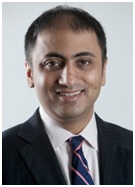 Sadanand Dhume is a Resident Fellow at the American Enterprise Institute, where he writes on South Asian political economy, foreign policy, business, and society, with a focus on India and Pakistan. Mr. Dhume has served as India bureau chief of the Far Eastern Economic Review and as Indonesia correspondent of FEER and the Wall Street Journal – Asia, and is currently a South Asia columnist for the Wall Street Journal.
Sadanand Dhume is a Resident Fellow at the American Enterprise Institute, where he writes on South Asian political economy, foreign policy, business, and society, with a focus on India and Pakistan. Mr. Dhume has served as India bureau chief of the Far Eastern Economic Review and as Indonesia correspondent of FEER and the Wall Street Journal – Asia, and is currently a South Asia columnist for the Wall Street Journal.
Dr. W. David Montgomery
 Dr. Montgomery is an expert on the economic issues associated with climate change policy, and testifies as an expert witness in state and federal courts on antitrust and damages cases dealing with petroleum and natural gas markets. His scholarly work is frequently published in peer-reviewed journals, and Congressional committees have requested his testimony on climate change, issues affecting oil and gas markets, and other energy market and environmental issues on numerous occasions. He advises clients on the strategic implications of changes in energy and environmental policies and energy markets.
Dr. Montgomery is an expert on the economic issues associated with climate change policy, and testifies as an expert witness in state and federal courts on antitrust and damages cases dealing with petroleum and natural gas markets. His scholarly work is frequently published in peer-reviewed journals, and Congressional committees have requested his testimony on climate change, issues affecting oil and gas markets, and other energy market and environmental issues on numerous occasions. He advises clients on the strategic implications of changes in energy and environmental policies and energy markets.
Dr. Michael E. Canes
 Dr. Michael Canes is a Distinguished Fellow at the Logistics Management Institute (LMI) in McLean, VA, where he conducts research on energy and environmental matters. While at LMI he has directed the LMI Research Institute and was a contributing author to the 2008 Defense Science Board study of Defense Department energy strategy, “More Fight – Less Fuel.” Prior to coming to LMI, Dr. Canes was Vice President and Chief Economist of the American Petroleum Institute, where he served for 25 years. At API, Dr. Canes was responsible for the Institute’s economic research and statistical publications, and was frequently interviewed and quoted in trade and public media.
Dr. Michael Canes is a Distinguished Fellow at the Logistics Management Institute (LMI) in McLean, VA, where he conducts research on energy and environmental matters. While at LMI he has directed the LMI Research Institute and was a contributing author to the 2008 Defense Science Board study of Defense Department energy strategy, “More Fight – Less Fuel.” Prior to coming to LMI, Dr. Canes was Vice President and Chief Economist of the American Petroleum Institute, where he served for 25 years. At API, Dr. Canes was responsible for the Institute’s economic research and statistical publications, and was frequently interviewed and quoted in trade and public media.
Ankit Desai
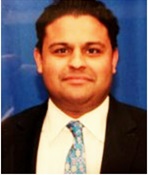 Ankit Desai joined Cheniere Energy, LLC from MWW Group where he served as a Senior Vice President and Strategic Counsel, managing the business portfolios and developing business leads for the privately-held and politically-active public affairs firm. Prior to his engagement with Cheniere, Mr. Desai held senior stations with the Health Information Center, an organization designed to promote the Affordable Care act, and with the life science venture capital firm Third Security, where he acted as Managing Director of the firm’s corporate communications and public relations enterprises.
Ankit Desai joined Cheniere Energy, LLC from MWW Group where he served as a Senior Vice President and Strategic Counsel, managing the business portfolios and developing business leads for the privately-held and politically-active public affairs firm. Prior to his engagement with Cheniere, Mr. Desai held senior stations with the Health Information Center, an organization designed to promote the Affordable Care act, and with the life science venture capital firm Third Security, where he acted as Managing Director of the firm’s corporate communications and public relations enterprises.
Sandra E. Safro (Speaker & Moderator)
 Ms. Sandra Safro is an associate at K&L Gates ,Washington, D.C. office. She focuses her practice on regulatory, policy, and transactional issues related primarily to natural gas, liquefied natural gas (LNG), and oil. Ms. Safro regularly advises on matters related natural gas commodity and pipeline transportation issues, as well as issues related to the import and export of LNG, including commercial agreements related to terminal capacity, developments on Capitol Hill, and proceedings before the Federal Energy Regulatory Commission (FERC) and the Department of Energy (DOE).
Ms. Sandra Safro is an associate at K&L Gates ,Washington, D.C. office. She focuses her practice on regulatory, policy, and transactional issues related primarily to natural gas, liquefied natural gas (LNG), and oil. Ms. Safro regularly advises on matters related natural gas commodity and pipeline transportation issues, as well as issues related to the import and export of LNG, including commercial agreements related to terminal capacity, developments on Capitol Hill, and proceedings before the Federal Energy Regulatory Commission (FERC) and the Department of Energy (DOE).
